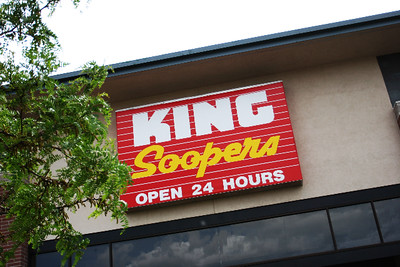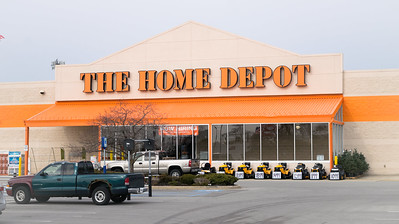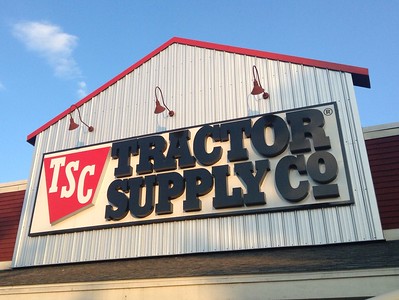
King Soopers offers a service for exchanging propane tanks in 2024. If you have an empty propane tank, you can take it to King Soopers and swap it for a full one. The cost for this service is about $19.99, but prices can vary.
This exchange is usually for standard 20-pound tanks, commonly used for grills. It’s a convenient option if you need propane quickly and don’t want to wait for a refill. For the most accurate and current pricing, it’s best to check with your local store.
In addition to exchanges, King Soopers also sells propane tanks, with prices starting around $30 for smaller tanks and going up to about $60 for larger ones. When considering whether to refill or exchange a tank, it’s generally cheaper to refill, but the exact cost-effectiveness depends on the tank size and current propane prices.
Remember to always inspect your tank for safety and check its expiration date before use.
Read related article: Why Are Propane Tanks Not Filled to 100% Capacity?
Available Size of Propane Tank You Can Exchange from King Soopers
At King Soopers, the common size of propane tank you can exchange is the standard 20-pound tank. This size is typically used for barbecue grills and other similar applications. It’s important to note that the availability of other sizes for exchange might vary by location, so it’s a good idea to check with your local store for specific details about different tank sizes they might accept for exchange.
Blue Rhino is a well-known brand that King Soopers carries in their propane exchange program. Blue Rhino is reputable for its quality and reliability, making it a popular choice for consumers looking to exchange their propane tanks.
If you’re planning to exchange a propane tank, Blue Rhino is likely the brand you’ll receive. For specific details or to confirm availability, it’s a good idea to contact your local store.
If you have decided to get a tank from this store, here are some tips on how to find a local store near your area.
- Website: Visit their official website and use the store locator feature. Enter your zip code or city and state to find the nearest store.
- Mobile App: Download their mobile app, which often has a store locator tool.
- Online Maps: Use online mapping services like Google Maps. Just type “King Soopers” along with your location.
- Local Directories: Check local business directories or phone books.
Read related article: How to Find a Propane Cylinder Exchange Cabinet Near You
Does King Soopers Sell Propane Tanks
If you’re looking for a propane tank, you might be wondering if your local store sells them. The answer is yes! You can find propane tanks of all sizes. Whether you need a small tank for a portable grill or a large tank for your home, you’ll be able to find what you’re looking for at King Soopers.
At this store, you can buy different sizes of propane tanks, suitable for various needs. The price range typically starts from around $30 for smaller tanks and can go up to about $60 for the larger ones. These tanks are found in the store’s camping section.
The available sizes provide options for both small-scale uses, like portable grills, and larger requirements, such as home heating. For the most accurate information on availability and current prices, it’s advisable to check with your local store.
The store offers a variety of propane tanks for purchase, catering to different needs and preferences. Here’s a more detailed enumeration:
- Small Tanks: Ideal for portable grills or small cooking devices. These are usually the most affordable options.
- Medium Tanks: Suitable for regular grilling or moderate home use. These strike a balance between size and portability.
- Large Tanks: Designed for extensive home heating or prolonged use. These are the most expensive but hold more propane.
Each size category has a specific price range, starting at around $30 for smaller tanks and going up to about $60 for larger ones. To get the most accurate information on the sizes available and their current prices, it’s best to contact or visit the nearest store.
How to Exchange a Propane Tank
To exchange a propane tank, follow these steps:
- Identify the Exchange Location: Find a store like King Soopers that offers propane tank exchanges.
- Tank Condition and Size: Ensure your tank is a standard size (usually 20 pounds) and in exchangeable condition. It should not be expired, heavily rusted, or damaged.
- Transport Safely: Transport the tank upright and secure it to prevent rolling or shifting.
- At the Store: Locate the propane exchange area, usually outside the store. Notify a store employee that you wish to exchange a tank.
- Complete the Exchange: The employee will take your old tank and provide a new, filled tank.
- Payment: Pay the exchange fee, typically around $19.99, but it can vary.
Remember to follow safety guidelines when handling propane tanks.
If you need to exchange your propane tank, here are a few tips to help make the process as easy as possible.
First, always call your local supplier to find out their exchange policy and procedures. Some suppliers will exchange your tank for a new one, while others may require you to return the empty tank and purchase a new one.
Be sure to have your old tank with you when you go to exchange it. The supplier will need to inspect the tank to make sure it is safe for use. They may also need to see your driver’s license or other ID to verify your identity.
Be prepared to pay a small fee for the exchange. This is typically just a few dollars, but it can vary depending on the supplier. Now that you know how to exchange a propane tank, all that’s left is to get out there and do it!
How Do You Know If The Tank Is Still in Good for An Exchange?
If you have a propane tank that you haven’t used in a while, you may be wondering if it’s still good. Here are a few things to look for to see if your propane tank is still good:
- Expiration Date: Propane tanks have a lifespan of about 12 years. Locate the manufacture date on the tank’s collar to confirm it hasn’t expired.
- Physical Condition: Inspect the tank for rust, dents, or other damages. Any significant damage can make the tank unsafe for use.
- Leak Test: Conduct a simple leak test by applying soapy water to the tank’s connections and valve. If bubbles appear, there’s a leak.
- Safety Regulations: Ensure the tank adheres to current safety regulations. If it’s outdated or non-compliant, it might not be accepted for exchange.
If your propane tank is found to be expired, it needs to be recertified for continued use. Recertification involves a safety inspection by a qualified technician, who will check the tank for any damage, corrosion, or leaks.
The recertification process extends the life of the tank for an additional 5 to 7 years, depending on local regulations. It’s important to have this done by a certified professional to ensure the tank meets safety standards. Once recertified, the new expiration date will be stamped on the tank.
Remember, not all exchange locations accept tanks for recertification, so it’s best to check with local propane suppliers or specialized services.
Is It Cheaper to Refill or Exchange?
When it comes to propane, the biggest debate is usually whether it’s cheaper to refill or exchange a propane tank. The answer to this question depends on a few different factors, including the size of the tank and the current price of propane. For example, a small, 20-pound propane tank typically costs around $15 to $20 to refill, while an exchange only costs about $10. However, a large, 100-pound propane tank can cost upwards of $50 to refill, making an exchange a much better deal.
Of course, the price of propane fluctuates, so it’s always best to check the current prices before making a decision. In general, though, exchanging your propane tank is usually the cheaper option.
While the price of propane may fluctuate, in general, it is cheaper to refill a propane tank than it is to exchange it for a new one. The cost of a new propane tank can range from $40 to $80, while the cost of refilling a propane tank is usually around $20. In addition, many companies that exchange propane tanks charge a service fee, which can add an additional $5 to $10 to the cost.
Cost-Effectiveness: Refill vs. Exchange
When considering the cost-effectiveness of refilling vs. exchanging propane tanks, it’s crucial to understand the numbers and measurements involved:
- Refilling Costs: Refilling a standard 20-pound propane tank typically costs between $15 to $20. This cost can vary based on local propane prices.
- Exchange Costs: Exchanging a similar 20-pound tank usually costs about $19.99, though this can differ based on the retailer.
Situational Preferences:
- Refill: Ideal if you have a reliable refill station nearby. It’s cost-effective for regular use, as you save a few dollars compared to exchanging. Plus, you keep the same tank, which is advantageous if it’s newer or in better condition.
- Exchange: Best for convenience, especially if you don’t have a refill station close by. Also preferable if your tank is old or in poor condition, as the exchange gives you a tank in good working order.
In addition to cost, consider the condition of your tank when deciding between refilling and exchanging. If your tank is older or shows signs of wear, exchanging might be the safer and more convenient option.
However, if your tank is relatively new and in good condition, refilling is often more economical in the long run. It’s also eco-friendlier, as you’re reusing the same tank.
Ultimately, the best choice depends on your specific circumstances, including the condition of your tank, convenience, and cost considerations.
Tips for Saving Money on Propane Tank Exchange
To save money on propane tank exchanges, consider these strategies:
- Bulk Purchases: If you frequently use propane, consider buying more than one tank at a time. Retailers often offer discounts for bulk purchases, so you could save a significant amount per tank. This approach requires more initial investment but can lead to long-term savings.
- Price Comparisons: Prices for propane tank exchanges can vary between different retailers. Take the time to shop around and compare prices at various stores, including King Soopers, hardware stores, or gas stations. Even a difference of a few dollars can add up over multiple exchanges.
- Loyalty Programs: Many retailers have loyalty or reward programs that offer benefits like discounts, points, or special offers to regular customers. By signing up for these programs at places where you frequently exchange propane tanks, you could accumulate savings or rewards over time.
- Discount Coupons and Promotions: Keep an eye on local advertisements, store flyers, or online coupons for special deals on propane tank exchanges. Retailers often run promotions during peak grilling seasons like summer or major holidays. Taking advantage of these deals when they’re available can lead to substantial savings.
By implementing these strategies, you can effectively manage your expenses for propane tank exchanges.
Conclusion
King Soopers’ propane tank exchange service is a practical choice for those needing a quick propane refill. It’s designed for ease and efficiency, providing a straightforward solution for your propane needs without the intricacies of tank refilling.
While specific costs may vary, the service typically offers competitive pricing, reflecting their commitment to customer convenience. Always prioritize safety and check the specifics with your local store for the most up-to-date information and services.
Overall, opting for propane tank exchange is a savvy choice for those seeking a hassle-free way to maintain a steady supply of propane. This service is not only about ease of access but also about providing a reliable and quick solution to meet your propane needs.
With King Soopers, you get the assurance of quality and convenience, all wrapped up in a service designed to fit into your busy lifestyle. Always verify the latest details with your local store to stay informed about their current offerings and prices.

Mike is an experienced propane technician with over 15 years of professional experience in the field. He has dedicated his career to helping customers with their propane needs, from installation to maintenance and repair. Together with Jeremy, he co-founded this website to provide useful information and guidance to customers seeking reliable propane services.







